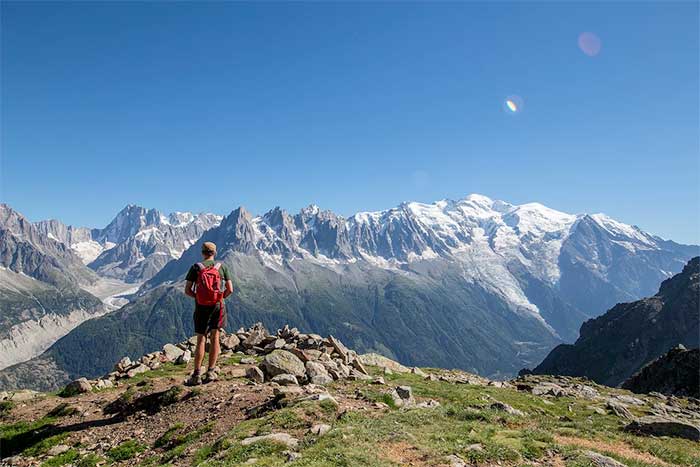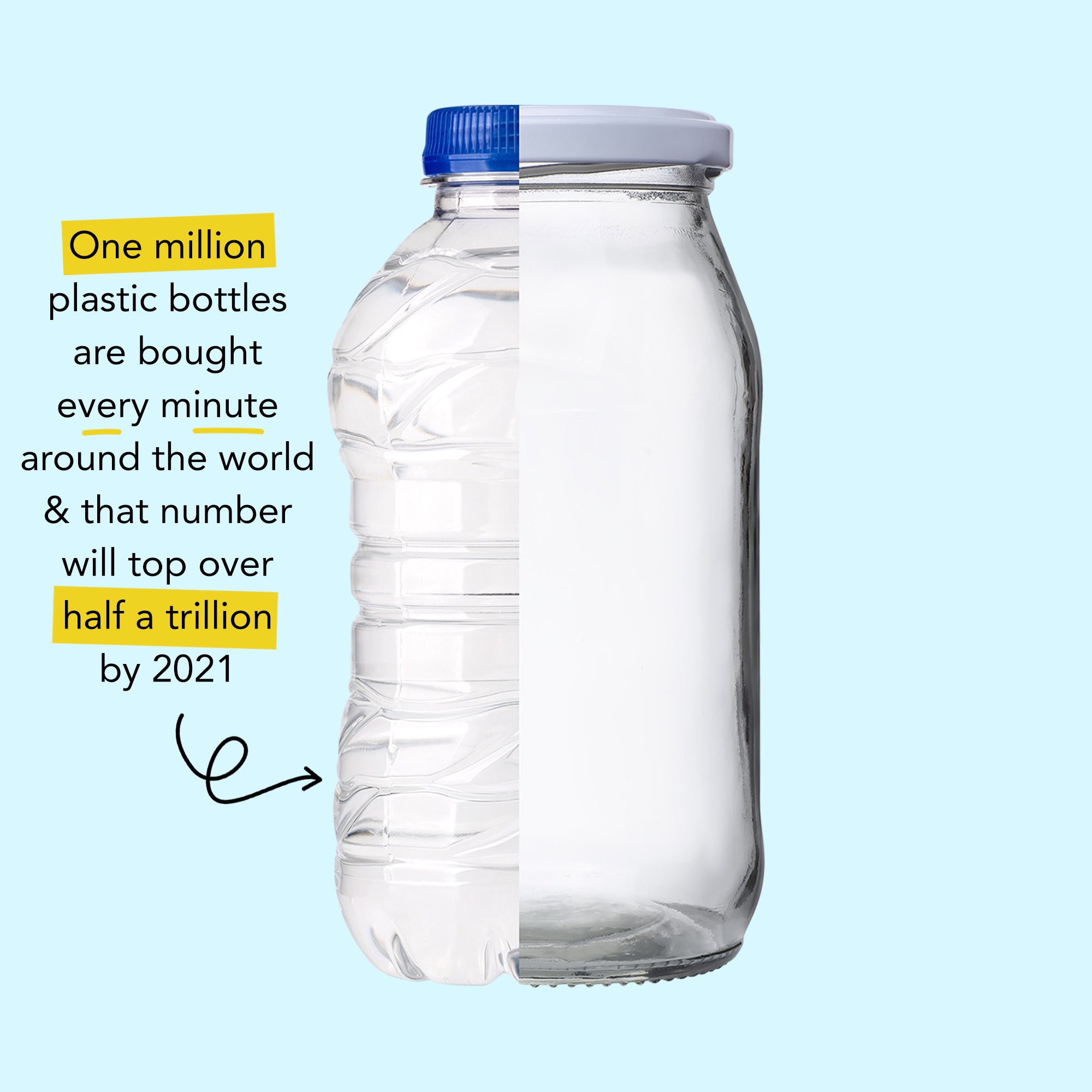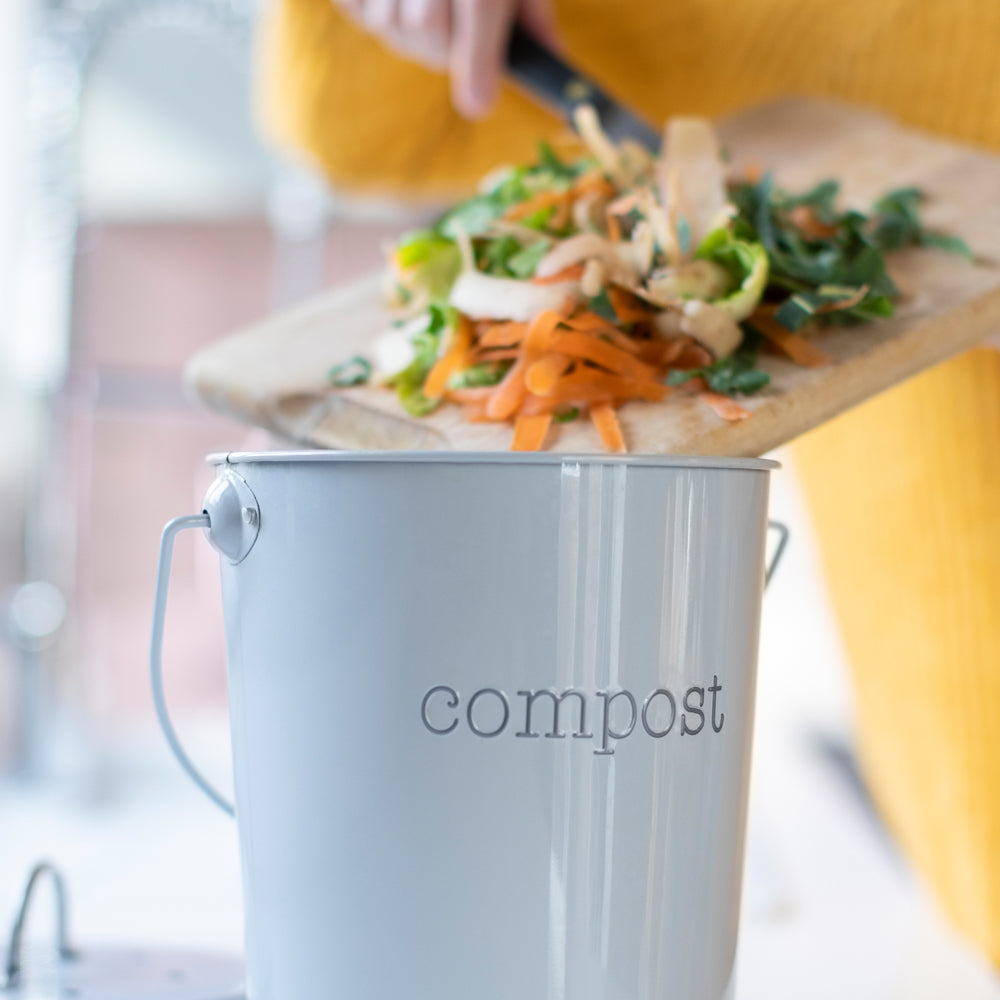
Let’s just talk about the elephant in the room first.
The simplest thing you can do to lower your environmental impact while travelling is to not travel at all. Not just because travel generally comes with a whole bunch of plastic-wrapped convenience items, but also because air travel (and cruising too) is really impactful. Flying from Auckland to London, you’re producing 3.9T of C02. Because that happens at high-altitude, some think that the climate change impact might double what it would be if the same amount of fuel was burned on the ground.
So, assuming that you’ve weighed all that impact up, and you’re still heading off to scratch that wanderlust itch (or get somewhere for work), here are some things you can do to lower your impact.
The truth is that eliminating waste when travelling isn’t much different to what you’re doing at home – taking reusable bags and water bottles, opting for farmer’s markets over supermarkets and looking for eateries with plates and silverware.

Here’s what else you can do.
Offset your carbon emissions
Air travel is not that awesome for the environment, true, but that’s not the end of the story. When you book, you can choose to offset the carbon emissions generated by your trip. Air NZ, as one example, has an option to offset your carbon emissions on their booking platform (yay you guys!). That money goes towards activities that take CO2 out of the atmosphere. When the Ethique team travel we buy double the credits needed to offset the emissions - just to be on the safe side!
Take three for the sea
Yes, be mindful of your waste, but you can also set a goal of leaving any place prettier than you found it. I vividly recall sitting on a very tiny beach in Greece with my husband. Without moving from my towel, I picked up a pile of plastic rubbish. It was everywhere. So, pack a dedicated rubbish bag (even the paper bag your lunch was served in will do!), and if you see any, pick it up. You’ll be saving local rivers, oceans and wildlife (not to mention all the bare feet you’re stopping from getting cut!)
Take only photos, leave only footprints
Sometimes you want to have a token from your trip that isn’t just a photo. But if you and every one of the other million visitors each year took a flower, stone or shell, the area would be cleaned out in a couple of months.
Go paperless
You don’t need a plastic travel wallet jammed with paper print-outs of your bookings and itineraries. And really, who wants the extra carry-on weight? Instead, download one of the many (many!) amazing travel apps out there.
Eliminate food waste
Leftovers are for travel too – just pop a small container in your backpack. That’ll save you heaps of cash as well. If you don’t want the food, leave it behind for the next person – hostels will often have a cupboard for visitors to leave unwanted food. If you’re staying in an Airbnb, flick the host a message to see if there are guests staying after you who you can leave food for. 
Choose eco-friendly ground transport
If you’re from an isolated country (like us down here in New Zealand) air travel will be an almost unavoidable part of travel. But once you have set foot into your destination you can revert to more earth-friendly transport: get on public transport, walk and bike. This can often be the best part of your trip. When my husband and I were on our OE, we got hooked on rideshare apps. It was a great way to meet locals and get insider tips on where to go and what to do. And who doesn’t love being able to have toilet and snack stops?
Stick to the rivers and the lakes that you're used to
Wise words, TLC. So many times I’ve been on a hike and seen people go off the track (most of the time to get that perfect shot). Local governments don’t spend truckloads of money and time building tracks for fun. They’re there to provide safe and easy access to otherwise inaccessible places, and are vital for protecting beautiful or important sites. Over-tourism is a thing! There are places in the world that had so many tourists they’ve had to restrict visitor numbers or shut down sites altogether. 
Pack with thought
It’s easy to open up a suitcase and throw in everything you own. With a little more thought, you’ll have less to lug around and save the plant at the same time - transporting a lighter bag will burn less fossil fuel. To do that, pack multi-use products, and cut down on liquids (beauty bars are good!) Choose quality footwear and clothing so they’ll last the whole trip, and take multipurpose pouches - perfect for holding little odds and ends during the flight, carrying snacks and lunches when exploring and keeping things like phones and SD cards dry if you’re out in the wet.
Swap big chains for local businesses
I get it - when you travel overseas, those chain stores with those on-trend styling and insanely low prices are super tempting. And those familiar food brands can be a welcome relief when you’re spending your days in a totally foreign environment. But in many countries, it’s these big corporations who’re making money from your tourist dollars, while local communities deal with things like litter, overburdened infrastructure or changes to their living environment and culture. Buying from small local businesses helps to spread the wealth a little. Grab dinner from a local food market, browse a craft event and seek out stores run and stocked locally. Since nothing will be imported, you’re getting a double whammy - just don’t forget your reusable bags!
Use reef-safe sunscreen!
Yes, wear sunscreen, but make sure you’re protecting mother earth as well as your skin. The main ingredient in many sunscreens is oxybenzone, which damages our coral reefs. This is a poison that both deforms soft tissue and also makes a coral larva encase itself in its own skeleton and die. Researchers have found that even one drop of oxybenzone in six-and-a-half Olympic swimming pools can damage coral. Luckily, eco-friendly sunscreens are becoming easier to find. Some sunscreens labelled “reef-friendly” still contain oxybenzone, so read the label.
Mindfulness in your travels
There’s no getting away from it, getting on a plane has an impact. Be mindful about when you take those trips and hold back some budget so you can afford to offset the carbon emissions from your flight. Then, when you get on the plane, bring your environmental ideals and practices along. That includes reusable bags and bottles, shopping at local markets, eating off real plates with proper cutlery, and leaving places better than you found them.
Pack light, take public transport, and save your leftovers – for yourself or someone coming after you. Stay on the tracks to protect local treasures, and make sure your sunscreen isn’t damaging fragile reefs. None of these things are difficult, they just take forward planning and a bit of mindfulness – and could mean you have a better trip all round.

 Impact
Impact Blog
Blog Store Locator
Store Locator


